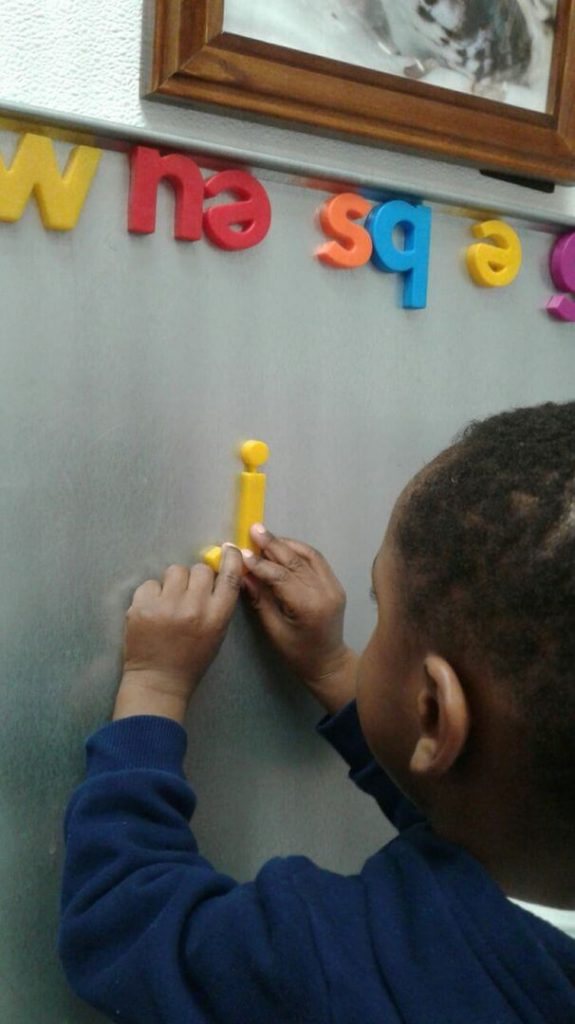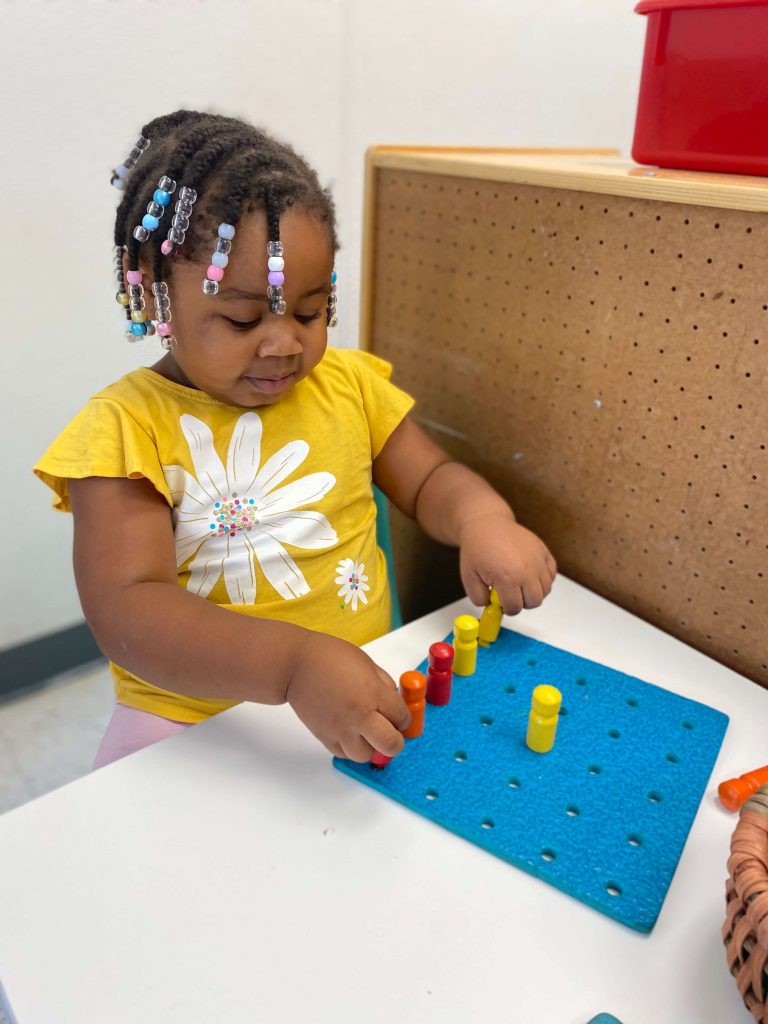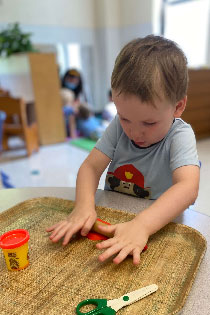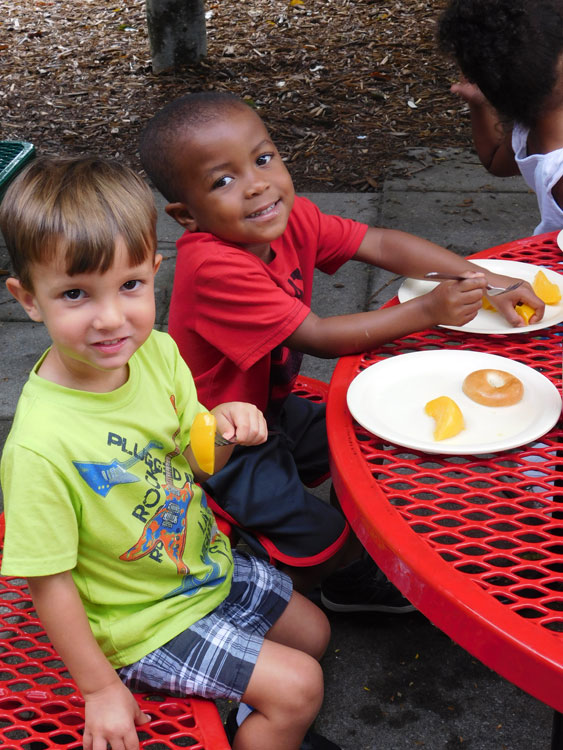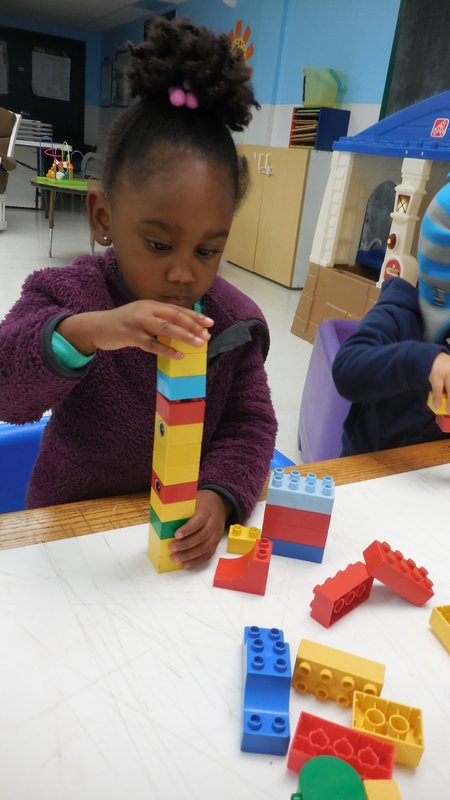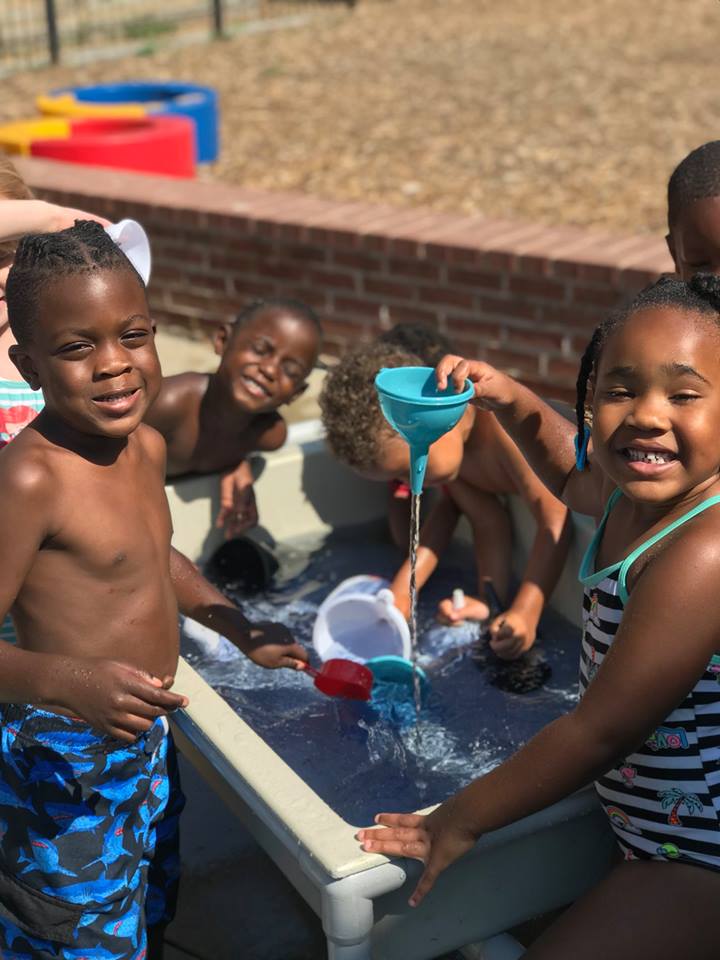Affectionately referred to as the “Twees” on-site by our staff, the Junior Preschool program promotes the social, emotional, cognitive, and physical development of 2½ to 3½ year-olds through safe, natural, and developmentally appropriate learning experiences.
Junior Preschool Program Goals in Areas of Development:
- Social
To help children feel comfortable in school, trust their new environment, make friends, and feel they are a part of the group. Teachers support children in practicing effective, age-appropriate social skills that prepare them for preschool and beyond. The Junior Preschool students grow and develop while striving for success in socialization and self-regulation. Children learn to take turns and share materials, become self-reliant, increase attention span, cooperate with others, and develop self-esteem.
- Emotional
To help children experience pride and self-confidence, develop independence and self-control, and have a positive approach toward learning. Dramatic play centers in our indoor and outdoor classrooms are a fundamental part of the developmental and emotional learning process in the Junior Preschool program. Creative, inviting spaces provide opportunities for children to safely and naturally express their own ideas, thoughts, and feelings with their peers. Teachers emphasize using words to express emotions appropriately.
- Cognitive
To help children become confident learners by letting them try out their own ideas and experience success, and by helping them acquire learning skills such as the ability to solve problems, ask questions, and use words to describe their ideas, observations, and feelings. Teachers guide students through activities that require the children to solve problems and explore the natural world through early science and math experiences. Messy play gives children opportunities to explore and understand their senses. Books and music encourage language and comprehension.
- Physical
To help children increase their large and small muscle skills as well as feel confident about their bodies. Activities such as grasping natural paint brushes, using scissors, and age-appropriate loose parts improve hand dexterity. Daily outdoor classroom lessons include large muscle building activities such as running, skipping, jumping, climbing, and balancing.
Cornerstone also offers an extensive set of curricular enhancements to in-class programming. See details here.
We invite prospective parents to learn more about early childhood development and milestones with the CDC resource here.

